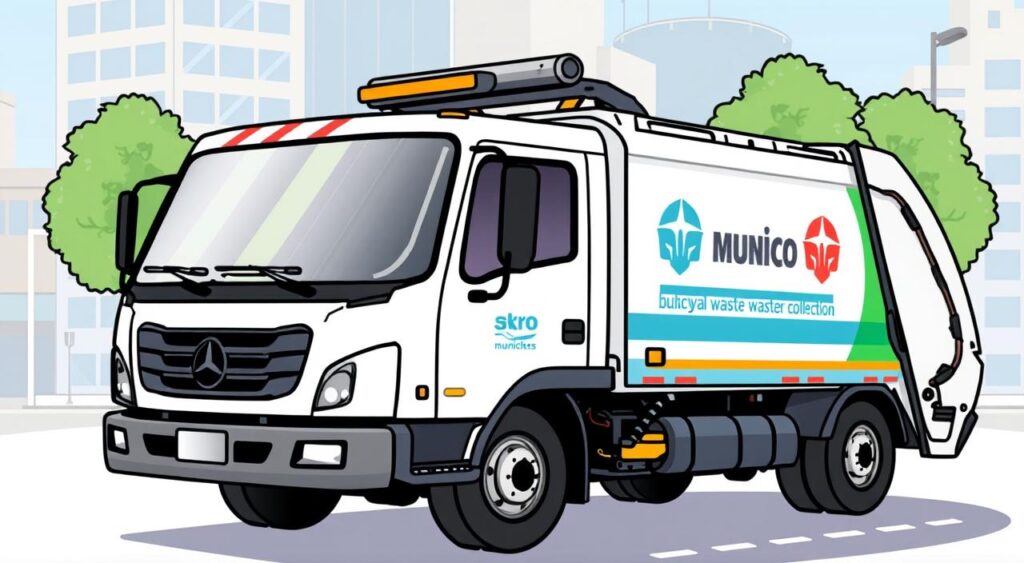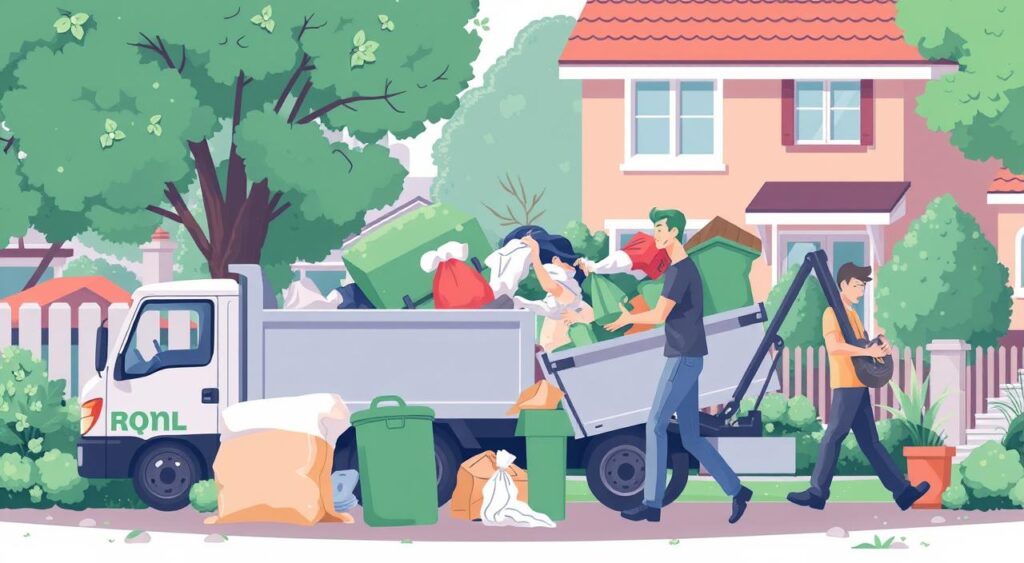Key Takeaways
- Discover 7 core differences between council and private bulky waste removal.
- Learn how each service handles costs, item limits, and recycling.
- Choose the right option based on urgency, item type, and convenience.
- Understand licensing, booking systems, and what items are accepted.
- Avoid fly-tipping by disposing of large items legally and sustainably.
What Is Bulky Waste Collection?
Bulky waste collection refers to the removal of oversized household items that cannot fit into a regular wheelie bin. This includes large furniture, white goods (like fridges), and garden equipment. Whether you’re moving, renovating, or simply decluttering, disposing of these items properly is essential for both environmental and legal reasons.
Residents in the UK can opt for one of two main services:
- Council-run bulky waste collection services
- Private rubbish removal companies
This guide breaks down the 7 most important differences to help you choose the best solution for your needs.
1. Cost Comparison
Council Services

Local councils typically charge a flat fee depending on the number and type of items.
| Type of Item | Council Price Range |
|---|---|
| 1–4 standard items | £20–£45 |
| Special items (e.g. fridge) | £30–£50 each |
Discounted or even free collections may be available for residents receiving benefits or of pension age.
Private Services
Private rubbish removal companies charge based on:
- Volume (e.g. cubic yards)
- Weight (e.g. heavy white goods)
- Labour (e.g. carrying items from inside your home)
Typical private costs range from £60 to £180, depending on location and item complexity.
2. Booking and Availability
Council
- Collections must be scheduled in advance.
- Available dates are often limited to 1–2 days per week.
- Wait times may be 1 to 3 weeks, depending on area.
Private
- Same-day or next-day availability in many cases.
- Evening and weekend slots often available.
- Online booking with immediate confirmation is common.
➡️ Winner: Private — If you need a quick or urgent collection.
3. Convenience
Council
- Kerbside only: you must move the item outside yourself.
- Missed pickups may result in fines or rescheduling fees.
- No labour included.
Private
- Items can be collected from inside the property.
- Labour is included—no heavy lifting required.
- More flexible pickup windows.
➡️ Winner: Private — Easier if you cannot move items yourself.
4. Accepted Items

What Councils Usually Accept:
- Sofas, beds, wardrobes
- Washing machines, ovens, dishwashers
- Carpets, mattresses, TVs
Not Accepted by Councils:
- Hazardous waste (e.g. paint, batteries)
- DIY waste (e.g. tiles, bricks, timber)
- Large garden waste (e.g. tree trunks)
Private Companies Usually Accept:
- Everything listed above plus:
- Builders’ waste
- Garden debris
- Broken playsets or shed panels
➡️ Winner: Private — Broader acceptance and fewer restrictions.
5. Licensing and Legal Compliance
Council
- Government-operated and always licensed.
- Items are processed through official recycling centres.
Private
- Must carry a valid Waste Carrier’s Licence.
- Some offer documentation for proof of responsible disposal.
Check if your provider is licensed
➡️ Winner: Tie — Both are legal options if verified.
6. Environmental Responsibility
Both services are encouraged to divert waste from landfill through recycling or reuse schemes.
Council Services
- Items often sent to household recycling centres.
- Appliances may be dismantled and recycled.
- Usable items may be donated through partnerships.
Private Services
- Many companies donate usable items to charity.
- Some specialise in recycling furniture and electronics.
- Check individual policies—some firms are more eco-conscious than others.
➡️ Winner: Tie — Both can be eco-friendly when used correctly.
7. Customisation and Service Add-Ons
Council
- Basic service with no customisation.
- No packing, dismantling, or aftercare.
- Only accepts certain item types.
Private
- May offer:
- House clearance
- Garage or loft clearance
- Packing/dismantling support
- Ideal for probate cleanups or property prep for sale
➡️ Winner: Private — Best for more complex disposal needs.
Summary Table: Council vs Private
| Criteria | Council Service | Private Removal Service |
|---|---|---|
| Cost | £20–£50 per load | £60–£180 depending on volume/weight |
| Speed | Slow (1–3 weeks) | Fast (same-day to 48h) |
| Pickup Location | Kerbside only | Inside or outside |
| Item Limitations | Many | Few |
| Environmental Impact | High | High (varies by company) |
| Extra Services | None | House clearance, dismantling, etc. |
When to Use Council Bulky Waste Collection

✅ You’re on a budget ✅ You can wait a few weeks ✅ You only need to remove a few standard items ✅ Items can be moved to the kerb
When to Use Private Rubbish Removal
✅ You need same-day or weekend collection ✅ Items are heavy or hard to move ✅ You’re clearing an entire home or outbuilding ✅ You want more flexible item types and pickup options
Environmental Tips for Large Item Disposal

- Donate before you dispose—charities will often collect reusable furniture.
- Repair or upcycle where possible instead of throwing away.
- Recycle electronics via Recycle Your Electricals.
- Avoid fly-tipping at all costs. Penalties include large fines or prosecution.
Conclusion: Choose the Best Bulky Waste Collection Option for You
Bulky waste collection isn’t one-size-fits-all. Council services offer affordable solutions if you’re not in a rush and can handle the logistics. Private companies provide the convenience and flexibility many modern households require—particularly during moves, renovations, or large-scale clear-outs.
Whichever option you choose, make sure it’s legal, licensed, and sustainable.
